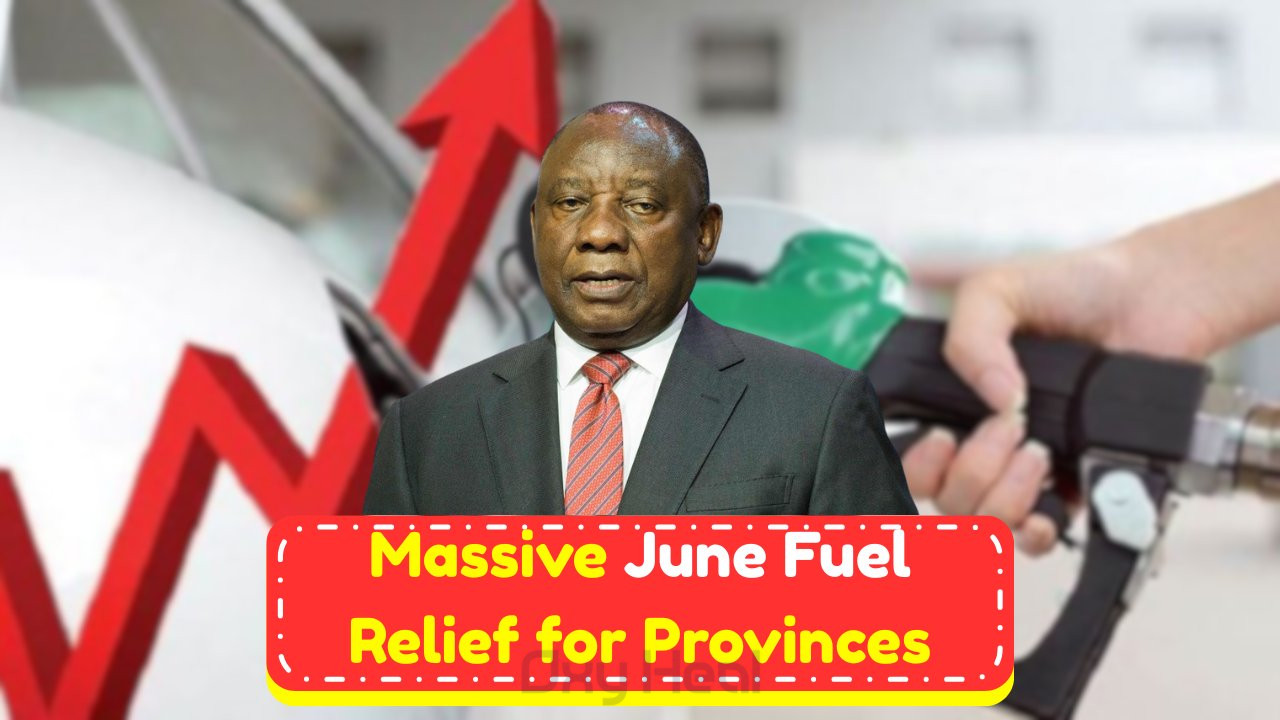Petrol and Diesel Prices in June 2025: South Africans can anticipate a significant decline in petrol and diesel prices this coming June 2025. This decrease is driven by a combination of international market trends and favorable local economic conditions. As fuel costs have a direct impact on the cost of living, this development is expected to bring some financial relief to consumers across the country.
Provincial Fuel Price Reductions
The reduction in fuel prices will vary by province, influenced by logistical costs and local taxes. In Gauteng, for example, motorists can expect to see a substantial drop, with petrol prices plummeting by up to R2 per liter. Meanwhile, the Western Cape might witness a slightly smaller decrease, but it remains significant nonetheless.
KwaZulu-Natal is projected to benefit from a similar reduction as Gauteng, while the Eastern Cape and Mpumalanga will see modest declines. Overall, each province will experience a decrease, albeit at differing rates, contributing to the broader economic impact expected across South Africa.
div id="div-gpt-ad-1748372014361-0">
Provincial Price Comparison Table
| Province |
Petrol Reduction (R/L) |
Diesel Reduction (R/L) |
Estimated Price (R/L) |
Previous Price (R/L) |
| Gauteng |
2.00 |
1.50 |
18.50 |
20.50 |
| Western Cape |
1.80 |
1.30 |
18.70 |
20.50 |
| KwaZulu-Natal |
2.00 |
1.40 |
18.60 |
20.60 |
| Eastern Cape |
1.60 |
1.20 |
19.00 |
20.60 |
| Mpumalanga |
1.70 |
1.30 |
18.90 |
20.60 |
| Limpopo |
1.90 |
1.50 |
18.60 |
20.50 |
| Free State |
1.80 |
1.40 |
18.70 |
20.50 |
| Northern Cape |
1.70 |
1.30 |
18.90 |
20.60 |
Impact on South African Economy
Lower petrol and diesel prices are poised to have a far-reaching impact on the South African economy. Not only will transportation costs decrease for consumers, but businesses that rely on fuel for logistics will also benefit. This could lead to lower prices for goods and services, easing inflationary pressures.
Moreover, the tourism sector may experience a boost as traveling becomes more affordable, encouraging both local and international visitors. The agricultural sector, heavily dependent on diesel for machinery, will also see reduced operating costs, potentially leading to lower food prices.
Key Economic Benefits
- Reduced transportation costs for consumers and businesses
- Lower inflation rates due to decreased logistics expenses
- Potential growth in the tourism industry
- Lower operational costs for agriculture, resulting in reduced food prices
Long-Term Fuel Price Trends
While the immediate outlook for fuel prices is positive, it is crucial to consider potential long-term trends. Analysts suggest that while fuel costs may rise again, strategic reserves and alternative energy sources could mitigate future spikes.
| Year |
Average Petrol Price (R/L) |
Projected Trend |
| 2025 |
18.50 |
Decreasing |
| 2026 |
19.00 |
Stable |
| 2027 |
19.50 |
Increasing |
| 2028 |
20.00 |
Increasing |
| 2029 |
19.80 |
Decreasing |
The transition towards electric vehicles and renewable energy sources is gaining momentum worldwide, which could further stabilize fuel prices in the long run. South Africa’s investment in green energy could play a pivotal role in maintaining affordable petrol and diesel prices.
Government Initiatives and Support
Overview of Government Strategies:
The South African government is implementing several initiatives to ensure sustainable fuel pricing. These include investing in local refineries, encouraging the use of biofuels, and enhancing strategic fuel reserves.
Support for Alternative Energy:
Efforts to promote alternative energy sources are being ramped up, with incentives for electric vehicle purchases and solar energy installations. These measures aim to reduce dependence on fossil fuels, thus mitigating future price volatility.
Role of Strategic Reserves:
Maintaining robust strategic fuel reserves is a key focus, providing a buffer against global market fluctuations. This approach is part of a broader strategy to stabilize the domestic fuel market.
Incentives for Green Energy Adoption:
To encourage a shift towards sustainable energy, the government offers tax breaks and subsidies for green technology adoption, aligning with global environmental goals.
Consumer Advice on Fuel Savings
Consumers are encouraged to take advantage of the current low prices by adjusting their habits to maximize savings. Strategies include carpooling, maintaining vehicle efficiency, and considering fuel-efficient vehicles.
Additionally, staying informed about price trends can help consumers make strategic purchasing decisions. By planning travel and fuel purchases around anticipated price changes, significant savings can be achieved.
FAQ Section
Frequently Asked Questions
What causes fuel prices to decrease?
Fuel prices decrease due to factors like reduced global demand, increased supply, and favorable exchange rates.
Will the price reduction affect all provinces equally?
No, the price reduction varies due to logistical costs and local taxes.
How can consumers benefit from lower fuel prices?
Consumers can save on transportation costs and enjoy lower prices on goods and services.
What is the government doing to ensure sustainable fuel pricing?
Investing in local refineries, promoting biofuels, and maintaining strategic reserves are key government strategies.
How long are the low fuel prices expected to last?
While prices are low now, future trends depend on global markets and local policies.
Departmental Contact Details
Department of Energy:
Email: [email protected]
Helpline: 0800 111 456
Department of Transport:
Email: [email protected]
Helpline: 0800 123 789
Consumer Council:
Email: [email protected]
Helpline: 0800 555 999
National Treasury:
Email: [email protected]
Helpline: 0800 444 777
Department of Trade and Industry:
Email: [email protected]
Helpline: 0800 222 333






